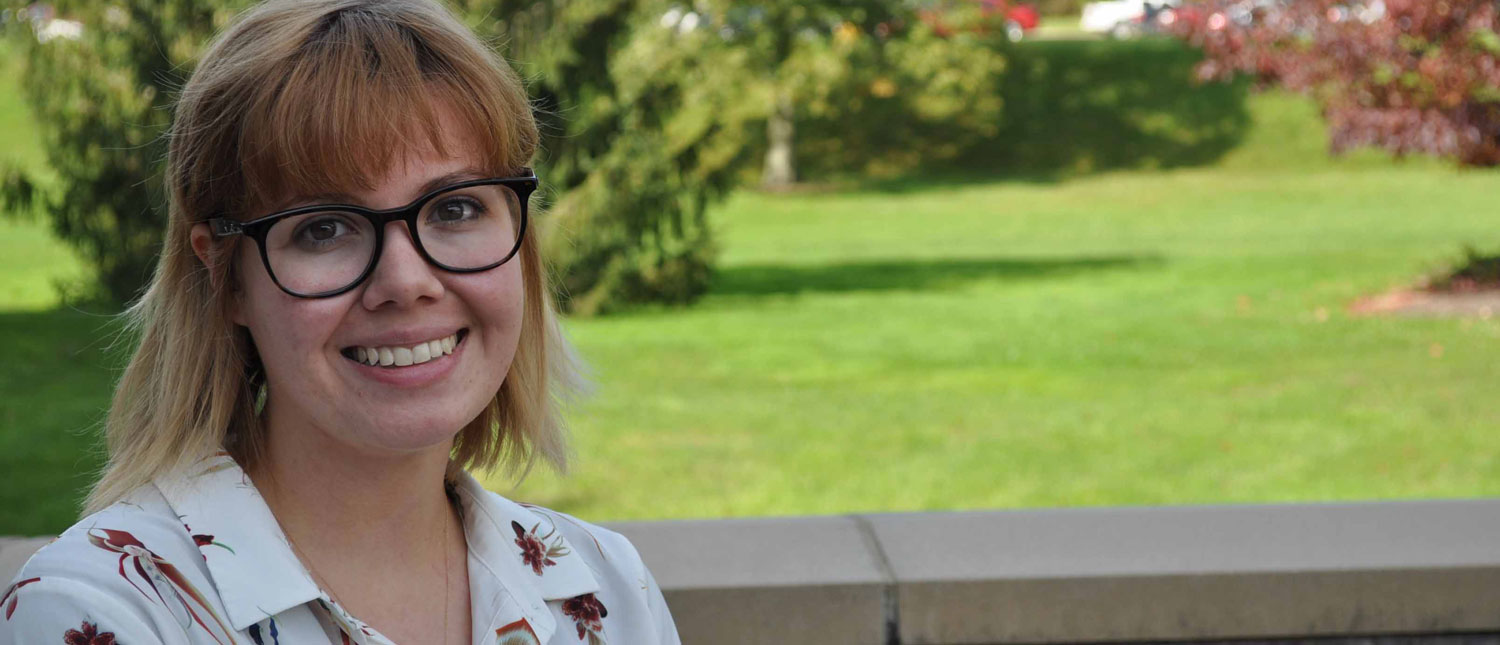Hayley Shasteen, a junior psychology/biology major on the Salem Campus, took first place honors at the Ā鶹“«Ć½ Summer Undergraduate Research Experience competition. She was one of 60 participants from all Kent campuses and competed in the psychological sciences division.
Shasteenās research project, āCognitive Impairments of those with Systemic Lupus Erythematosus,ā spanned 10 weeks over the past summer. The winners of the SURE program were announced in October.
She will present her project at the Undergraduate Research Conference on the Salem Campus in December, but she will also be a presenter at the Midwestern Psychological Association conference in Chicago next spring and is working to have her research published.
āOne of the symptoms of lupus is cognitive impairment, but the field of research related to this issue is filled with holes and lots of arguments,ā she related. āI have lupus, as well as my mother, so I am really interested in this subject from a personal standpoint. There seems to be a lot of research related to lupus, but there are a lot of missing pieces and not a lot of replication related to cognitive impairment, or ābrain fog,ā as some call it.ā
Shasteen explained that lupus is an autoimmune disease in which a personās immune system attacks the bodyās systems rather than any foreign āinvadersā that attack the body. One often reported symptom of the disease is brain fog.
Through her research, Shasteen uncovered that many other researchersā findings suggest that brain fog and cognitive impairment are unrelated.
āI want to find out what brain fog really is,ā she said.
For her research over this past summer, Shasteen had one dedicated participant (diagnosed with lupus) who was tested every day for 10 weeks, using computerized ābrain trainingā programs. Throughout the 10 weeks, Shasteen also tracked the participantās physical symptoms and subjective cognitive symptoms, along with variables of weather, diet, stress, anxiety and mood.
Shasteen reported that she was somewhat surprised by the findings at the end of the 10 weeks. The two main findings included: 1) That cognitive performance is not related to the subjective feeling of being cognitively impaired; and 2) that the subjective feeling of being cognitively impaired was strongly related to stress, anxiety, the number of psychological symptoms, negative mood and the amount of sugar consumed.
While the research submitted for the SURE competition focused on one participant (tested every day for 10 weeks, or 70 times), Shasteen also conducted the same cognitive testing on two other participants. One participant was tested every week (a total of 10 times) and the other participant was tested at week one and again at week 10 (a total of two times). Findings from all three participants will be included in the article she is currently writing.
Shasteen said she was 13 years old when she was diagnosed with lupus and is now in a remissive stage. āHaving lupus gives me an edge with this research because I āget it.ā I know what it feels like to have brain fog,ā she said. āThe more reading I do about this, the more interesting it all becomes to me. Iāve always had an interest in the brain and how it works, so this research fascinates me.ā
Originally from Berlin Center, Shasteen graduated from Western Reserve High School in 2016 and now lives in Canfield. She serves as a mentor with the Kent State Rural Scholars Program and said she plans to attend graduate school to earn a doctorate degree in cognitive neuro psychology.
# # #
Photo: Hayley Shasteen
